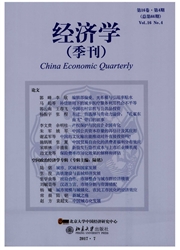

 中文摘要:
中文摘要:
在当前制度背景下,地方政府既是公共品的提供者,又是垄断了土地交易一级市场、“经营”土地的“企业家”。本文建立一个理论模型阐明了,尽管垄断更多的国有土地能够放松财政约束,但均衡时地方政府会将更多的财政资源投入到能让土地增值和未来税收增长的基础设施建设中,教育、医疗和社会保障等公共服务并不一定是宽裕财政收入的受益者。利用全国284个地级市2003--2008年的面板数据的实证研究发现:在控制住其他变量后,地方政府垄断更多国有土地转让会显著增加经济性公共品的供给,非经济性公共品的供给则会显著下降。
 英文摘要:
英文摘要:
Under China's current institutional setup, local governments are not only the provider of public goods, but also monopolize the primary land market. This paper builds a simple model showing that, while controlling more land relaxes local governments' financial constraints, it also causes structural investment imbalances in equilibrium. Most of the finan- cial resources are invested in the economic public goods, such as infrastructure that increases land values and future fiscal revenues, but non-economic public goods such as education, health care and social security do not necessarily benefit from better fiscal stands. Based on panel data of 284 prefecture-level cities from 2003 to 2008, our empirical work shows that lo- cal governments controlling more land provide more economic public goods, but less non-eco- nomic public goods.
 同期刊论文项目
同期刊论文项目
 同项目期刊论文
同项目期刊论文
 期刊信息
期刊信息
